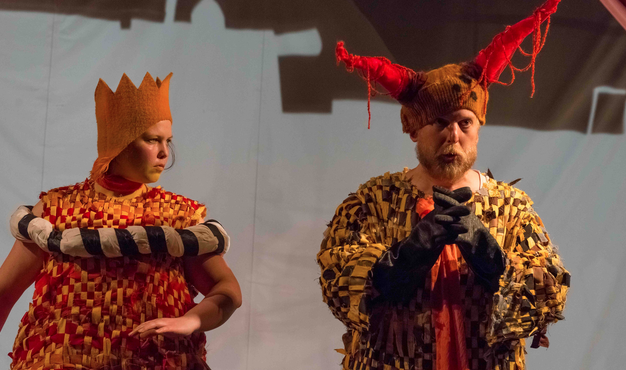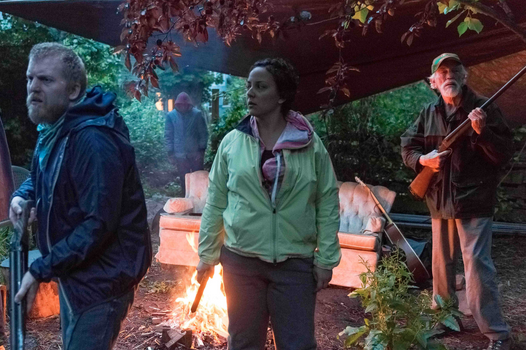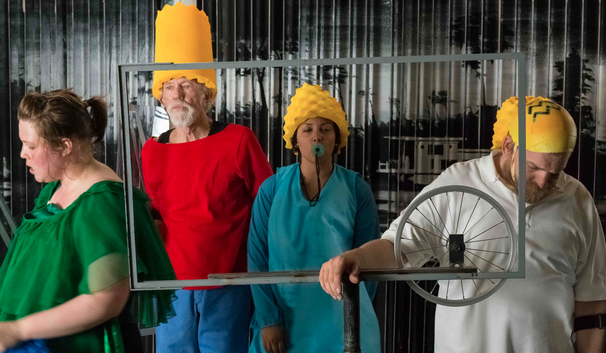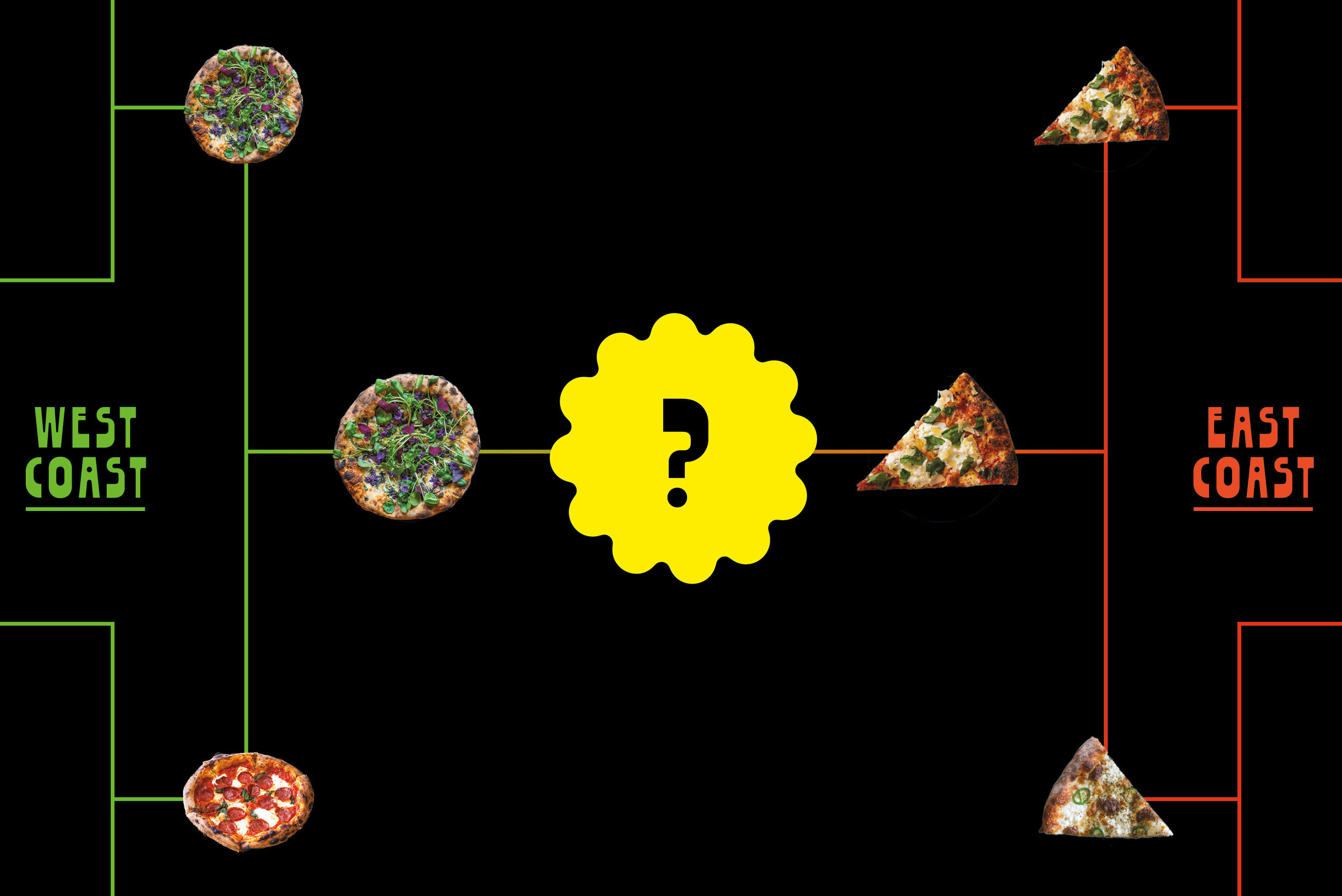What If The Simpsons Became Our Post-Apocalyptic Mythology?

Jen Rowe and Brian Adrian Koch. Photo credit: Brud Giles
You’ve had that conversation, right? The one where you find common ground with someone—a friend, maybe, but possibly a stranger—over that movie or TV show, be it Star Wars: Return of the Jedi, Monty Python’s The Life of Brian or Mean Girls. You quote lines, you reconstruct entire scenes. It’s a shared narrative, a common language, a form of self-representation within a grand identifier. Now try that again, post-apocalypse.
That’s what the characters in Anne Washburn’s Mr Burns: A Post-Electric Play attempt in its moving and funny first act. Their shared narrative? An episode of The Simpsons, specifically the one entitled Cape Feare, which riffs hilariously on the 1991 Robert DeNiro vehicle Cape Fear, which is itself based on a 1962 film of the same name. Meta enough for you? Believe me, you’re only getting started. . .

Photo credit: Brud Giles
Washburn, a Reed College alum, is interested less in the lives of her individual characters as they struggle for survival in a post-nuclear-meltdown world, and more in the fate of the stories they tell. In Mr Burns, she opens with a straight narrative—a bunch of people around a campfire trying to recount that Simpsons episode.
For the second act, we jump forward seven years. Those who shared a campfire now share a stage, as a professional theater troupe performing—you’ve guessed it—Cape Feare.
Then, another leap forward for Act Three, this time 75 years into the future, to a point where those same stories have become a new mythology, now being used to make sense of a troubled past.
Confusing? Maybe, but it’s ballsy as all hell, and thought-provoking with that. How do we use stories to escape things, or make sense of them? And how, in the telling and retelling, do they alter over time to reflect the way we deal with change? These are the kind of questions teased out here, at times to fascinating effect, with story building on story to a strangely timeless denouement.

Jennifer Rowe, Tobias Andersen, Cristi Miles, Brian Adrian Koch. Photo credit: Brud Giles
This Portland Playhouse production also makes clever use of shifting settings. Mr Burns starts outside, moves to the basement and only uses the traditional theater space for the final act, an evolution that makes sense of the leaps in time. The cast brings the kind of manic energy a post-apocalyptic world might very well engender, with Brian Adrian Koch—fabulously Simpsonesque—and Jennifer Rowe the standout performers.
The takeaway? Washburn’s play is not for the faint-hearted. Post-apocalyptic visions rarely are, but what of a realist post-apocalyptic play that ends where Greek tragedy meets musical theater? It’s a hard sell, and as we move further into the future, we lose something. When you watch a group of people who have survived an apocalypse interact on any emotional level, you are being asked to invest in them. By jettisoning those same people entirely in the strangely stagey third act, Mr. Burns cashes out on that investment before it’s fully paid off. There are moments, too, where some tightening of the script or musical numbers might have required less from performers and audience, without any cost to the message.
Still, Mr Burns has smarts and courage. And as a play about theater, a story about telling stories, that’s all the reason you should need to go see it.
Mr Burns: A Post-Electric Play, through June 7 at Portland Playhouse




